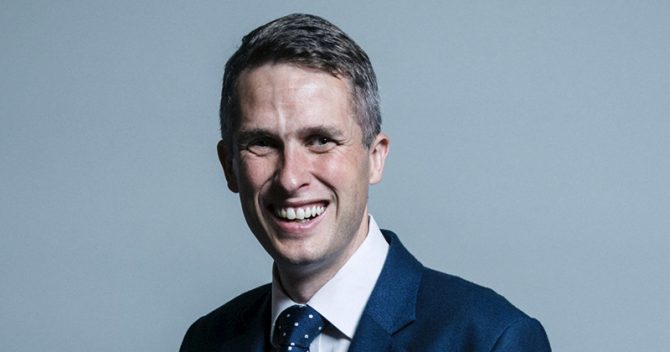BTECs will survive the government’s bonfire of level 3 qualifications if they can demonstrate there is a “real need” for them, it has been announced.
The Department for Education has today confirmed a new streamlined system for students finishing their GCSEs will be phased in between 2023 and 2025.

This will involve stripping public funding from “poor quality” qualifications which duplicate other courses and overlap with T Levels or A-levels, with education secretary Gavin Williamson warning: “As we recover from the pandemic, there can be no room in our education system for second rate qualifications.”
But the Association of Colleges has warned “hastily scrapping hundreds of level 3 qualifications, starting in 2023, risks leaving some of the most disadvantaged young people without routes into meaningful work”.
The Sixth Form Colleges Association has also warned the proposals have the potential to be “hugely damaging” to the life chances of young people because it is “clear that the government intends to sweep away the vast majority of applied general qualifications like BTECs”.
Pearson, the awarding body of BTECs, said it is “good” to see that some of its feedback to the review has been taken into consideration in the government’s decision, and they will now take time to fully understand the implications.
This new streamlined system will make apprenticeships, A-levels and new T Levels the main progression options after GCSEs, the DfE stated.
However, other level 3 applied general qualifications in areas like creative and performing arts will continue to be on offer, so long as awarding bodies can prove those qualifications “give employers the skills they need or lead to good higher education courses and demonstrate why there is a real need for them to be funded”.
The department has yet to say the process for deciding which qualifications will be retained.
The government also promised today more level 3 qualifications will be made available to adults, including T Levels, from 2023. This was originally mooted last year.
Level 3 courses have ‘important role’
Today’s announcement comes after the highly contentious, two-stage level 3 and below qualifications review, originally launched in March 2019 to consider the thousands of tech levels, technical certificates and applied generals, including Pearson’s popular BTEC courses.
A consultation, attached to the review, had sought views on only providing public funding to qualifications which meet quality, purpose, necessity, and progression criteria.
Stakeholders were also asked about defunding qualifications which overlapped with T Levels or A-levels.
The Education and Skills Funding Agency announced in 2019 a “moratorium” on approving funding for new qualifications at level 3 from last September.

Institute for Apprenticeships and Technical Education chief executive Jennifer Coupland has emphasised level 3 qualifications’ “important role for people at the start of their careers and those looking to build new skills.
“This review will help us to do even more to help people gain the knowledge and skills they need for prosperous and successful careers in their chosen industry,” she said today.
DfE warned defunding qualifications could hurt disadvantaged
However, sector bodies and even qualifications watchdog Ofqual have warned the DfE defunding existing level 3 qualifications could more heavily impact disadvantaged learners.
Responding to today’s announcement, the Association of Colleges argued disadvantaged students will be “disproportionately affected” by the changes.
That is because the qualifications likely to be withdrawn are taken by higher proportions of black and minority ethnic students, those with lower prior attainment, SEND students, and those eligible for free school meals.
Ofqual, in its response to the review in January, made many of the same points, and that some learners, including those with SEND, “may find T Levels less well-suited, too big or not sufficiently flexible for their individual study needs”.
Eleven education representative bodies issued a joint statement last month saying defunding applied general qualifications will hamper students’ progress to employment or further study.
Bill Watkin, chief executive of the Sixth Form Colleges Association, said today that closing down the route of BTECs means that “thousands of students will be left without a viable pathway after they have finished their GCSEs – that’s bad for young people, bad for social mobility and bad for the economy”.
AoC chief executive David Hughes has urged the DfE to “take a moment” and create a new roll-out plan which ensures T Levels’ success “while not inadvertently disadvantaging thousands of already disadvantaged students with their quest for speed”.
Federation of Awarding Bodies chief executive Tom Bewick called it “disappointing” the government was supporting some regulated qualifications “instead of supporting course diversity and real careers choices for young people post-16”.
“The notion in a British economy, with over 75,000 different job roles currently available, that the number of qualifications made available can be reduced to a mere handful is fanciful. If policymakers listened to parents, learners and college community leaders, as much as to employers, they would know that.
“Frankly, learners deserve better.”
Current set of qualifications ‘confusing’
Yet some employers are impatient for the proposed changes to be rolled out.
Rolls-Royce Civil Aerospace Division’s chief of industrialisation Ruth Ginever today said: “The current proliferation of different qualifications and lack of standardised content is confusing to both employers, seeking to recruit and to young people, and their parents, looking to make decisions on qualifications to study.”
She called the lack of standardisation “disruptive,” and said it led to extra costs bringing an apprentice into the business, as “often funding for extra academic support for learners has to be found to cover gaps emanating from non-standard level 3 qualifications”.
Cindy Rampersaud, senior vice president for BTEC and apprenticeships at Pearson, said: “While we welcome the government’s aim to raise standards in further education, we have always warned that policy makers should not lose sight of what is working well already – namely existing high-quality qualifications that are respected by employers, universities and students alike, be they BTECs or other vocational qualifications.
“It is good to see that some of this feedback, from us and a wealth of other respondents to the consultation, has been taken into consideration. We will take the time now to review the government’s response to the consultation in full and understand the implications for BTEC students and colleges.”









Whitehall knows best attitude, despite high numbers of respondents disagreeing with many of the consultation questions it appears Ministers and DfE simply ignore and carry on with their T-Levels must succeed at all costs fixated reforms. Why do respondents bother with these consultations when Government already have the direction of travel mapped out.
If the government wanted to really reform education they would scrap GCSE’s. If young people are obliged to stay in education until 18 why have exams at 16? Teaching them a broad education for 2 more years and then giving them the choice ot specialism would be a better way of doing things.